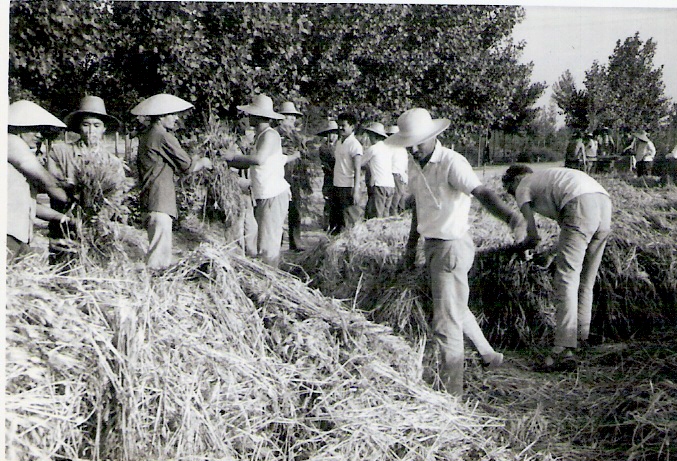From “China: Year Zero,” Christian Caryl’s Foreign Policy piece about the modest beginnings of an economic miracle, an excerpt about Americans attending 1979’s curious Canton Trade Fair:
“On the appointed day, they set off from Guangzhou in a van that jolted down hideous dirt roads for hours. At one point it broke down, and everyone had to get out and walk to a spot where the Chinese hosts were able to arrange for another ride. The walk was not a total loss; the little group passed by a rural private market where local farmers were hawking all manner of produce, a vignette none of the Americans in the group could ever remember having seen before.
Finally, after a full day’s journey in the intense heat, they arrived at their destination. It turned out to be just across the border from Hong Kong — not far from the Lo Wu crossing where all foreigners made their entry into mainland China. (In these days you couldn’t fly directly to Beijing from the outside world.) The bewildered Americans followed their hosts to the top of a dike, where the Chinese guides gestured at the vista spread before them. It was not clear what they were meant to look at. All that the Americans could see was the usual South China landscape: There were rice paddies, worked by peasants and their water buffalos in the time-honored manner, and duck ponds. There were a few trees, and here and there a modest peasant dwelling. What the Chinese were describing seemed to bear no relationship to the observable reality. This, they told the Americans, was the location of something called the Baoan Foreign Trade Base. The party had designated it as a special location for foreign investment. According to the plans under consideration, it would soon be the site of chemical factories and textile mills and manufacturing plants. And, oh yes, there would also be plenty of hotels for the foreign businessmen. It was going to be a wonderful chance to make money.
The Americans thought the Chinese were crazy. ‘It stretched everybody’s imagination,’ [Tom] Gorman said. ‘I don’t think there was one of us who listened to the briefing and thought, ‘Yeah, that sounds feasible.’ It was, emphatically, ‘Come on, what are you smoking?’
The next day, after an uncomfortable night spent in the only existing local hotel (which had no electricity or running water), the Americans attended a briefing where the Chinese unrolled blueprints that depicted acres of factories, warehouses, and other facilities. The plans betrayed a startling ambition. ‘It was really hard to believe,’ Gorman recalled. ‘Nothing in China at that point happened quickly — except politics. Business and construction didn’t happen on those kinds of timelines.'”
Tags: Christian Caryl, Tom Gorman

